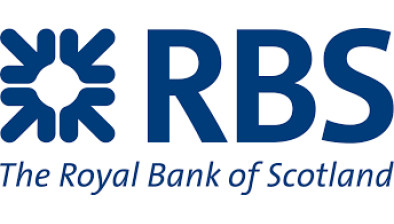RBS: Private sector output rises at quicker pace in January
Scotland’s private sector saw growth pick up at the start of 2022, according to the latest Royal Bank of Scotland PMI.

Malcolm Buchanan
The seasonally adjusted headline Royal Bank of Scotland Business Activity Index - a measure of combined manufacturing and service sector output - pointed to an eleventh straight monthly expansion in output in January, rising from 52.7 in December to 53.7 to signal an accelerated pace of growth that was solid overall.
Services continued to drive the overall upturn while manufacturing output fell again, albeit at a slower pace. A further rise in new business supported the overall upturn during January, while business confidence hit a six-month high.
Meanwhile, cost pressures remained intense in January, with firms reporting surging material, utility, fuel and wage costs, as well as price hikes at suppliers. That said, the rate of input price inflation eased further from November’s peak.
January data signalled another rise in inflows of new work to Scottish companies, stretching the current sequence of expansion to ten months. The latest upturn was driven by strong demand conditions due to the easing of lockdown measures and improved customer confidence, according to panellists. That said, the rate of growth was unchanged from December’s sequence low and only modest.
At the sector level, services firms drove the upturn with a further solid increase in new work, while goods producers saw order book volumes decline at a faster pace.
Scottish companies recorded improved expectations towards activity over the next year in January. The level of positive sentiment hit a six-month high, with optimism attributed through anecdotal evidence to hopes of strong demand as COVID-19 restrictions are loosened.
Both service providers and goods producers registered a stronger degree of optimism towards activity over the next 12 months in January.
A tenth straight monthly uplift in Scottish private sector employment was recorded in January, amid reports that firms were expanding capacity in expectation of strong sales in the coming months. The rate of job creation was the weakest since last April, and slower than the UK-wide trend, but still solid by historical standards.
Both manufacturers and services firms recorded an increase in staffing levels in January.
January data provided further signs of capacity pressures at Scottish private sector firms, as the level of outstanding business rose for the tenth month in a row. Strong sales and supply issues were linked by survey respondents to the latest rise in backlogs. Despite accelerating on the month, the rate of increase in outstanding business was only modest overall.
At the sector level, stronger capacity pressures at services firms contrasted with a second consecutive monthly fall in work in hand (but not yet completed) at manufacturers.
As has been the case in each month since June 2020, costs faced by Scottish companies increased in January. Greater utility, wage and fuel bills, higher material costs, and shortages were all attributed through anecdotal evidence to the latest round of cost inflation. The rate of increase slowed further from November’s peak, but was nonetheless amongst the quickest on record and rapid overall.
That said, Scotland registered the slowest rate of input price inflation across the 12 monitored UK areas in January.
Average prices levied by Scottish private sector firms rose further in January. Respondents linked the latest uplift with efforts to maintain margins amid surging input costs. The rate of charge inflation quickened since December and was amongst the steepest on record.
Manufacturers again registered a much quicker rise in prices charged than services firms in January.
Malcolm Buchanan, chair, Scotland Board, RBS, commented: “The opening month of 2022 bought some good news for the Scottish private sector. Growth picked up to a solid pace amid a further upturn in new orders, while the rate of cost inflation retreated further from the survey’s highs seen in November last year to provide some tentative signals that, whilst still elevated, the rate of increase may have peaked.
“Although the private sector as a whole saw growth quicken, sectoral data highlighted that the latest uplift was again driven by the service sector, with manufacturing output contracting further as supply issues and weak demand continued to weigh heavily on goods producers.
“The easing of COVID-19 restrictions over the coming months are expected to provide a boost to private sector firms, however, with business confidence hitting a six-month high in January as companies expect demand conditions to improve further over the year.”








